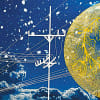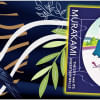What to take away from Amanda Palmer's The Art of Asking

Many of us fear asking for help. It makes us think that we would just become a burden or we feel an invisible pressure to get the job done ourselves. Amanda Palmer's The Art Of Asking shows us how to create a close-knit family of friends and supporters by being honest, giving, and not being afraid to ask. It also teaches us to stop trying to accomplish everything on our own and to eventually accept help from others.
Amanda Palmer is a performer, writer and musician. She began her career as a street performer before joining The Dresden Dolls, a musical duo that went on to have tremendous success. Her "The Art of Asking" TED Talk from 2013 led to her book which is partly a memoir. In short, the text is the author's autobiography. It details how she came to believe in the philosophy of asking, sharing and connecting.
The main lessons we can take away from this book are accepting someone's help might help the giver too, asking is a two-way street with the possibility of a 'no', and lastly, make friends, not customers.
Palmer refers to her own accounts in explaining these lessons. She talks about her long-time friend and neighbour, Anthony who had provided her with moral support throughout her teen years and while touring. While on the outside it appeared to be an imbalanced relationship, it was also aiding Anthony in working through this abusive childhood which he was reluctant to talk about.
The second lesson is perhaps one that we all need – what if the other party says no? She compares this with asking to receive a gift. Giving and receiving are cooperative endeavours. There are always two parties involved, one who must respond "yes" or "no" and the other who either asks or gives. Giving someone a gift implies that you want them to accept it. However, unless you offer the other party the choice to reject it, it will not truly be a gift.
Lastly, if you observe Palmer on her socials, you will notice that she has an openness in interacting with her fans. At times, the comments confuse you if the commenter is just another fan or someone Palmer knows personally.
In 2000, Palmer began building an email list but instead of using the list for marketing purposes, she just used it for everything. To her, she was out to make friends, not to gain customers and saw sending an email to thousands as messaging multiple pen pals at once. She created a family as well as a fan base.
Palmer advertised upcoming gigs, recruited fans for other musicians' concerts, and shared personal anecdotes. What she never did was sell them out. Her managers sought to improve her communication once she was signed to a record label. But she refused to give them access to her mailing list because she feared they would use it for commercial purposes. The lesson here is that you will have a sizable support network much before you need it if you put effort into making friends, not customers.
Overall, this book is one everyone should read. We all struggle to ask and receive help, and this book offers insight into learning how to navigate these emotions.
Puja does nothing but read Gaiman and drinks unhealthy amounts of coffee. Send her cat photos at fb.com/pspspspspspspspspspspuwu/

 For all latest news, follow The Daily Star's Google News channel.
For all latest news, follow The Daily Star's Google News channel. 








Comments